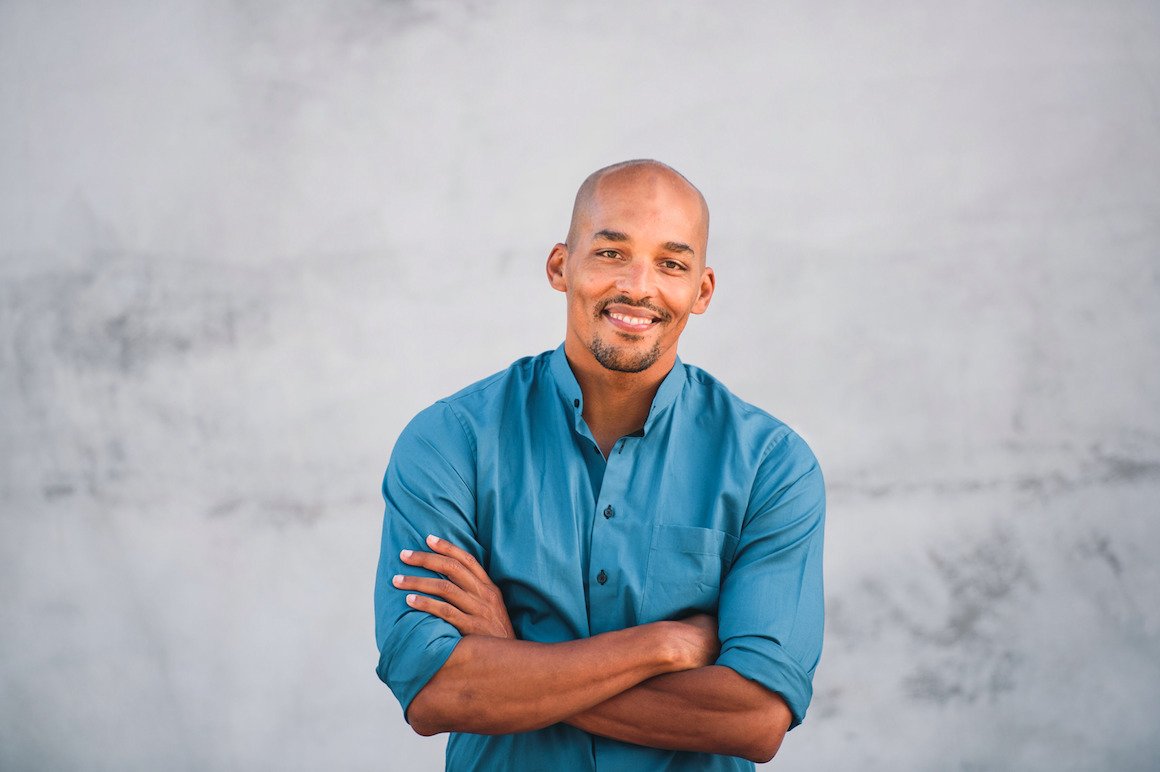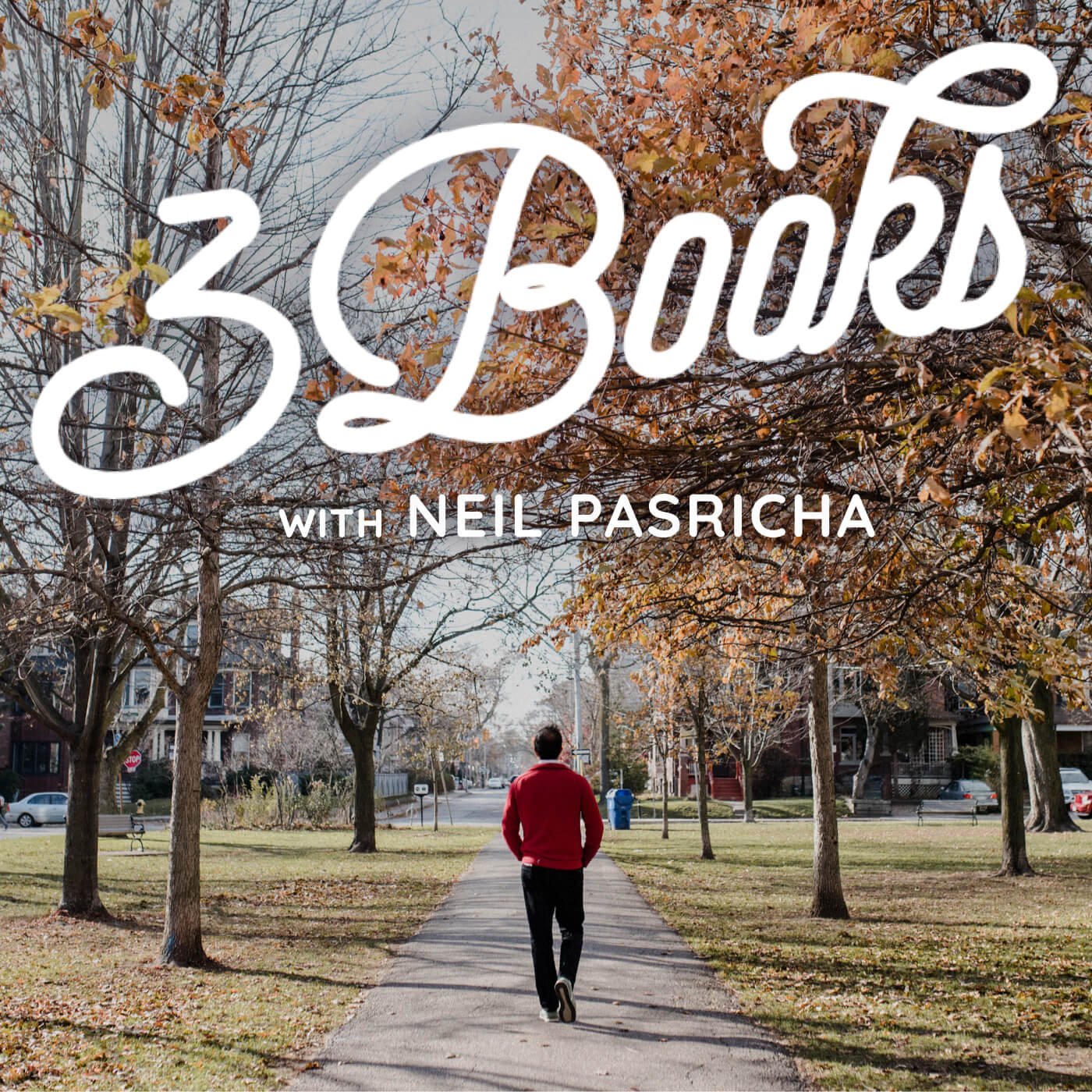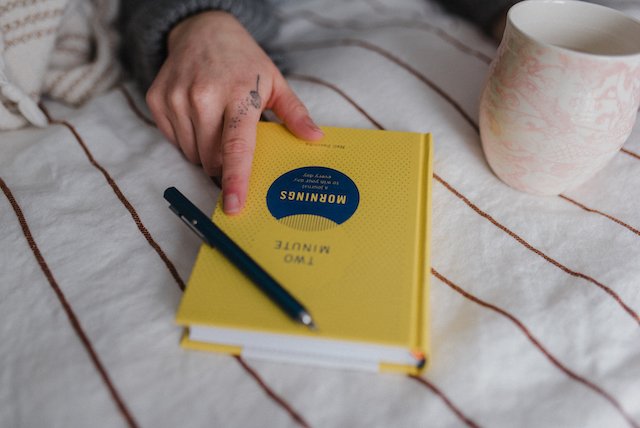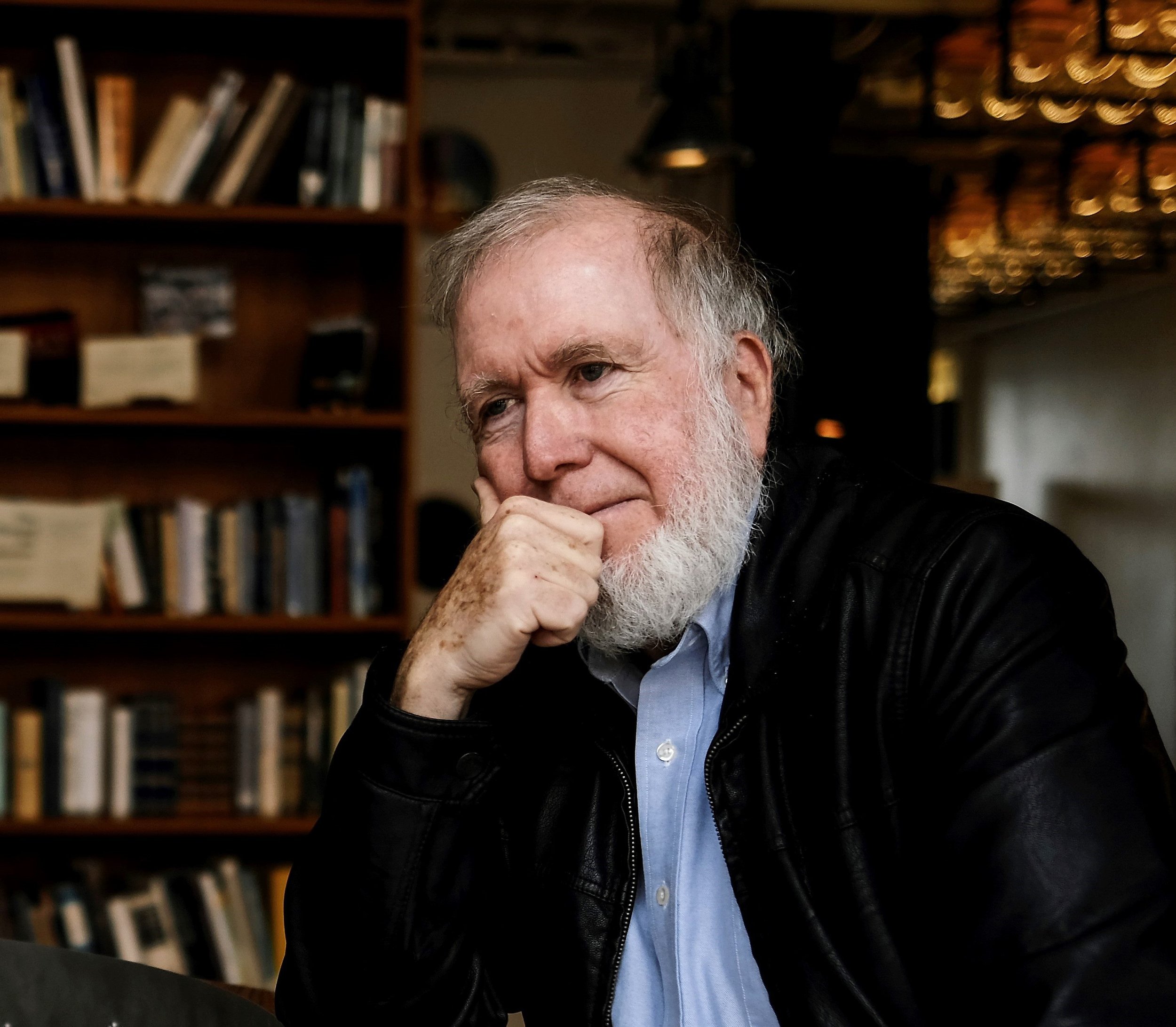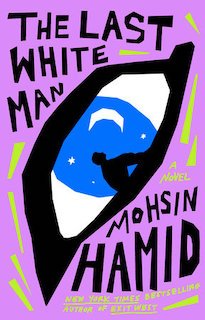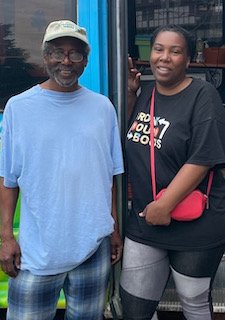Five years ago I was invited down to Brooklyn to speak at an event called The Shine Movement. It was an intriguing soul-refueling combination of meditation, drumming, giving, and a few words by me. The event attracted a fascinating subculture of people and I felt slightly entranced meeting the man and mind behind it all: Light Watkins.
Light Watkins is someone I consider a master of spirit and mind. He grew up in Montgomery, Alabama (with siblings Candy, Trey, and Dusty!) in the 70s and 80s, traveled the world as a fashion model, and then worked as one of the most prominent yoga instructors in LA (including teaching future princesses). Deepak Chopra calls his meditation insights "simple and profound." Today Light has taught meditation to thousands of people from all walks of life in retreats and workshops around the world. He is the author of three bestselling books: The Inner Gym, Bliss More, and Knowing Where to Look. And each morning since 2016, Light has been sending out a daily dose of inspiration email.
Light also hosts The Light Watkins Show, a podcast that shares inspiring stories of regular people who’ve found their purpose in life.
Not only is Light incredibly prolific but he is also a wandering spirit -- literally. He lives out of a backpack. Not a giant hiking backpack, either! A normal backpack. I was grateful to catch up to him from Mexico City to finally reconnect many years later. I think you'll love this conversation and his 3 most formative books.
We discuss: fostering community, happiness as a muscle, learning to meditate, leading with your heart, managing resistance, and much, much more…
Let’s flip the page into Chapter 114 now…
Chapter 114: Light watkins on Mexico's marvels, meditation myths, and mental mastery
What You'll Learn:
What is the Shine Movement?
How do you cultivate community?
Why is consistency so critical to personal growth?
Why does criticism not work?
How can you establish a meditation practice?
Why are more people not leaning towards meditation?
Why is passion in teaching so critical?
Why is happiness a muscle?
How can we learn to master our minds?
How can meditation help with sleep?
When is the optimal time to meditate?
What does it mean to live out of a backpack?
Why is Mexico City so special?
What does it mean to seek to understand?
Why should you begin with the end in mind?
Why is name change controversial in the West?
How did Light get his name?
How can we let our heart guide us?
How can we manage resistance?
How can we manage overwhelm and guarantee rest?
How can we learn to prioritize?
Notable quotes from LIght:
"Happiness is like a muscle that you have to cultivate.” Light Watkins #3bookspodcast
connect with light:
word of the chapter:
Resources Mentioned:
Light’s first book [16:56]
Light’s second book [41:57]
Light’s third book [1:01:50]
Knowing Where to Look by Light Watkins
Bliss More by Light Watkins
The Inner Gym by Light Watins
The Happiness Equation by Neil Pasricha
The Speed of Trust by Stephen Covey
Turning Pro by Stephen Pressfield


